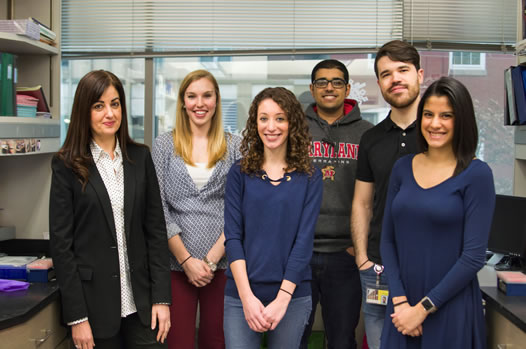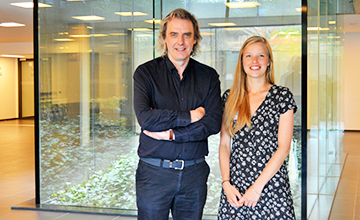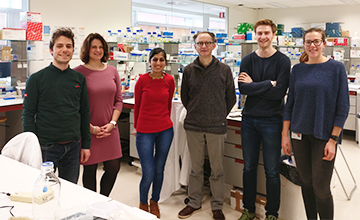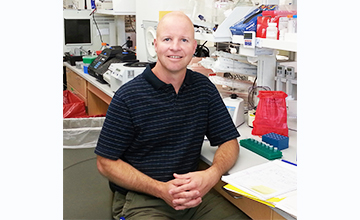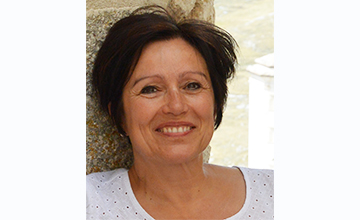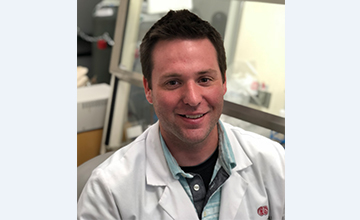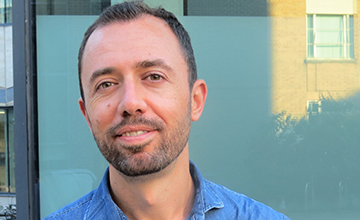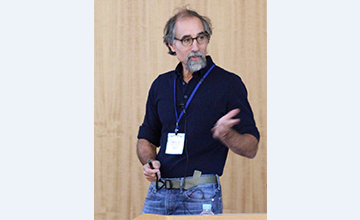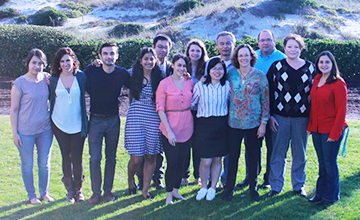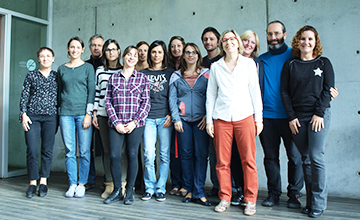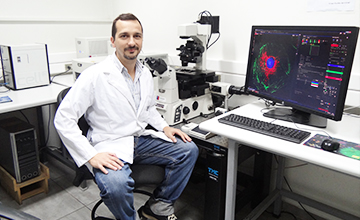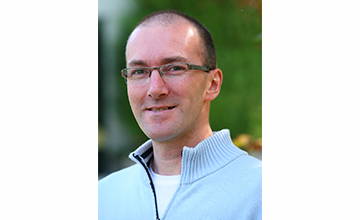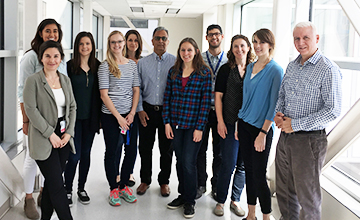MDA Resource Center: We’re Here For You
Our trained specialists are here to provide one-on-one support for every part of your journey. Send a message below or call us at 1-833-ASK-MDA1 (1-833-275-6321). If you live outside the U.S., we may be able to connect you to muscular dystrophy groups in your area, but MDA programs are only available in the U.S.
Grant - Summer 2018 - DMD – Melissa Spencer, PhD
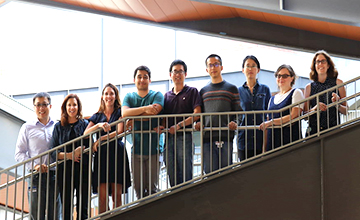
“One of the biggest barriers to success for gene therapies is the ability to deliver the cargo to the tissue of interest. In our case, the goal is to reframe the DMD gene in skeletal muscle and the heart. By developing a systemically injectable nanoparticle delivery platform, we hope to have a mechanism to use to deliver our CRISPR platform to multiple muscles in the body.”
Melissa Spencer, professor of Neurology at the University of California at Los Angeles, was awarded an MDA Research Grant totaling $300,000 over 3 years to work on the development of nanoparticles for the treatment of neuromuscular disorders.
For Duchenne muscular dystrophy (DMD), a primary goal of therapy development is to correct the DMD gene mutation. To that end, researchers are developing therapies such as micro-dystrophin (a smaller version of dystrophin) gene replacement and CRISPR Cas9 gene editing. In each case, they are relying on a small virus called AAV (adeno-associated virus) to deliver these therapies to the muscles and heart within the body.
However, AAV-based delivery of these therapies poses a couple of ongoing challenges. The first challenge with AAV-based delivery is that it is not completely efficient at targeting muscle cells and may target other cells. The second challenge is that AAV is a virus that exists in the environment. This means that some people may have already been exposed to AAV and could reject the AAV when it’s given as a therapy. Also, because of this immune response, AAV can be administered only one time to a person, which could be a problem if re-dosing is necessary.
To address these issues with the AAV-based approach, the Spencer lab is developing nanoparticles as an alternative method for delivering gene-editing and gene-replacement therapies. Nanoparticles are very small (1 nanometer) organic or inorganic molecules that can carry drugs or nucleic acids (DNA or RNA) and can be re-administered multiple times. Additionally, the nanoparticles are transient, so if unwanted side effects or safety concerns occur, nanoparticle administration could be discontinued. Using this approach, the investigators hope to develop a better delivery vehicle for systemically injected gene-replacement and gene-editing therapies to muscle.
Grantee: DMD – Melissa Spencer, PhD
Grant type: Research Grant
Award total:
Institution:
Country:
